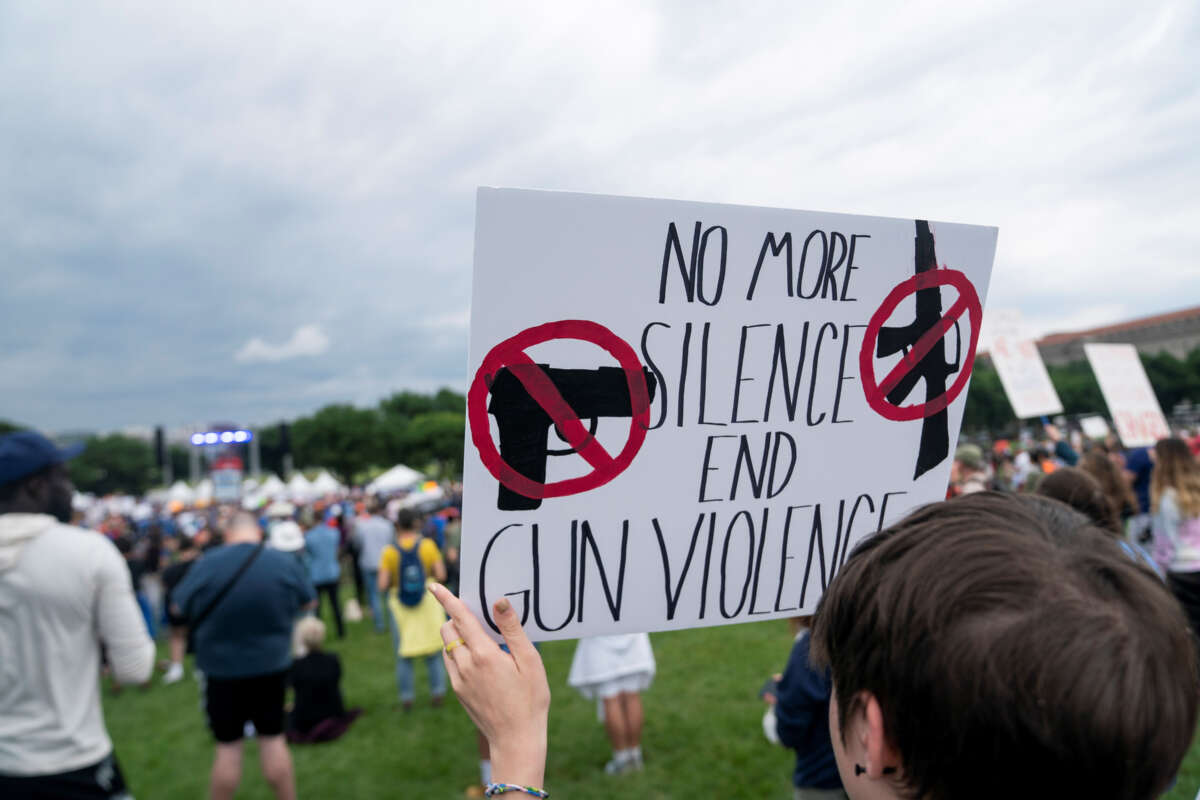A three-judge panel on the U.S. Circuit Court of Appeals for the Fifth District ruled on Thursday that gun laws restricting people who are under domestic violence restraining orders from owning weapons are unconstitutional.
The members of the Fifth Circuit Court that issued the ruling included two Trump appointees (Judges James Ho and Corey Wilson) and a Reagan appointee (Judge Edith Jones). The Fifth Circuit, encompassing the states of Texas, Louisiana and Mississippi, is widely considered the most conservative appeals circuit in the country.
The case before the court involved a Texas man named Zackey Rahimi, who admitted to possessing guns after being issued a domestic violence restraining order following an alleged assault on his girlfriend in 2020. Law enforcement arrested Rahimi after he participated in five separate shootings in late 2020 and early 2021.
In June of last year, the U.S. Supreme Court created a controversial new standard for evaluating gun laws across the country. In New York State Rifle & Pistol Association v. Bruen, the Court stated that new gun restrictions, passed by any state legislature in the U.S., had to be “consistent with this nation’s historical tradition of firearm regulation” — a standard that isn’t applied to any other constitutional right.
Wilson, who wrote the opinion for the Fifth Circuit Court in the case, stated that, based on the Supreme Court’s new rules, people under domestic abuse restraining orders must be allowed to own guns, as restrictions like those placed on Rahimi are an “outlier that our ancestors would never have accepted.”
U.S. Attorney General Merrick Garland opposed the ruling.
“Whether analyzed through the lens of Supreme Court precedent, or of the text, history, and tradition of the Second Amendment, that statute is constitutional,” Garland said in a statement. “Accordingly, the Department will seek further review of the Fifth Circuit’s contrary decision.”
The ruling will likely be appealed, either to an en banc proceeding where the full circuit court will hear and rule on the matter, or directly to the Supreme Court.
The ruling was widely condemned by supporters of gun reform and advocates for domestic abuse survivors.
On its blog, the National Coalition Against Domestic Violence (NCADV) wrote that the ruling “struck down lifesaving protections for survivors and put them at increased risk of abuse, injury, and death.” Ruth M. Glenn, president of public affairs for the organization, added:
[The Fifth Circuit Court judges] place more value on an abuser’s access to guns than a victim’s right to live a life free from violence, fear, and the constant threat of the use of firearms. These judges discarded decades of progress in victims’ rights and have actively put survivors and their families in harm’s way. We demand better for survivors and denounce this dangerous and inhumane ruling.
Shannon Watts, founder of Moms Demand Action, an organization that advocates for stronger regulations on gun ownership, also weighed in on the ruling. “Given that domestic violence is often a precursor to gun violence, this ruling is a death sentence for women and families in the US,” she said.
According to a 2019 report from Everytown that was updated in 2022, abusers are five times more likely to kill their female victims if they have access to firearms. Guns also “further exacerbate the power and control dynamic commonly used by abusers to inflict emotional abuse and exert coercive control over their victims,” the report said.
The Bruen standard was widely disparaged after it was issued in June of last year. At the time, Gregory Shaffer, Chancellor’s Professor of Law and Political Science at the University of California, Irvine, and David Sloss, Sutro Professor of Law at Santa Clara University, wrote an op-ed for Truthout explaining why the ruling was contradictory to the rules established by the U.S. Constitution.
“The [Supreme Court’s] current conservative majority pays lip service to both federalism principles and the right to life, while abusing its power of constitutional interpretation to advance a right-wing political agenda and to override democratic choices made by states and localities whose voters are concerned about significant gun violence,” they said.
Press freedom is under attack
As Trump cracks down on political speech, independent media is increasingly necessary.
Truthout produces reporting you won’t see in the mainstream: journalism from the frontlines of global conflict, interviews with grassroots movement leaders, high-quality legal analysis and more.
Our work is possible thanks to reader support. Help Truthout catalyze change and social justice — make a tax-deductible monthly or one-time donation today.
